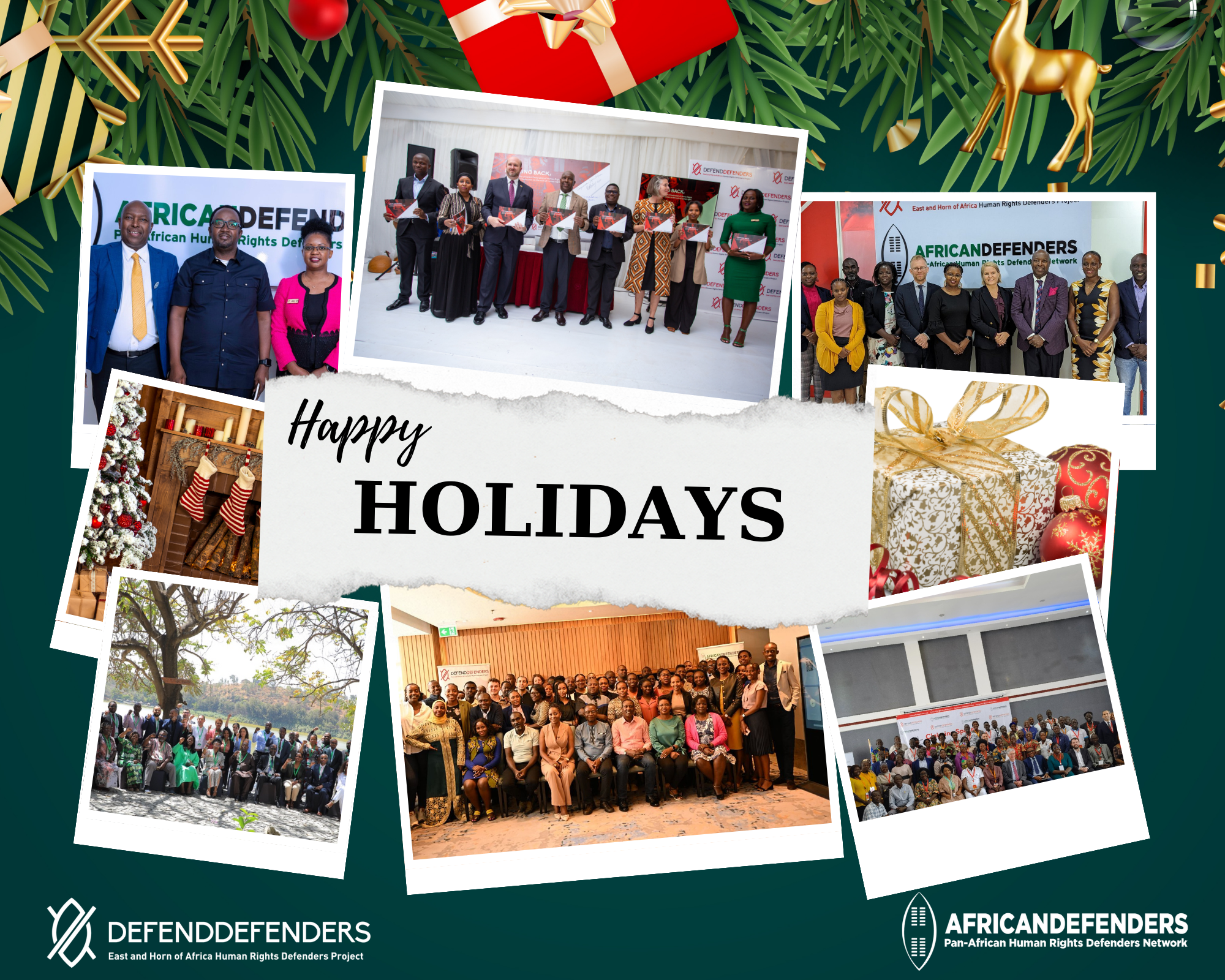As we wind up 2023 at DefendDefenders and AfricanDefenders, it is my traditional honor to invite our valued partners in a common endeavor to ensure a safer and better working environment for Africa’s Human Rights Defenders (HRDs), to join me as we take stock and reflect on our year’s work.
This year is a bittersweet one as we celebrate 75 years of the Universal Declaration of Human Rights (UDHR) and 25 years of the UN Declaration on Human Rights Defenders, as well as 30 years of the UN Human Rights Office (OHCHR), despite tremendous challenges HRDs continue to face. The two foundational instruments are significant because they legitimise our work and crystallise the human rights standards set therein. To commemorate these landmarks, I participated in a high-level panel in Geneva, Switzerland where I highlighted the role of networks and coalitions in enhancing protection of HRDs.
This year started on a bad note for the human rights community. In the morning of 21 January, we woke up to chilling news of the assassination of Swaziland’s (Eswatini) Thulani Maseko, a trailblazing HRD and advocate for judicial and political reform in his native Swaziland. DefendDefenders unequivocally condemned his brutal assassination and clarified that the Swaziland monarchy bore the primary responsibility to investigate and bring his killers to justice. Thulani’s death was a stark remainder of the harsh reality of HRDs who dare speak truth to power, and the critical need to enhance their protection.
Nonetheless, AfricanDefenders convened the African HRD Convention on the margins of the 36th Ordinary Session of the African Union Assembly (Heads of States and Governments Session) from 15-17 February, in Bishoftu, Ethiopia, bringing together tens of African HRDs to reflect on the situation of human rights and HRDs on the continent. In a conclusive Bishoftu Declaration, African HRDs condemned the murder of their colleague Thulani Maseko, called for an international investigation into his murder. They also challenged African governments to do better in living up to their commitments in the UDHR, the African Charter and in particular, in ensuring the safety of HRDs.
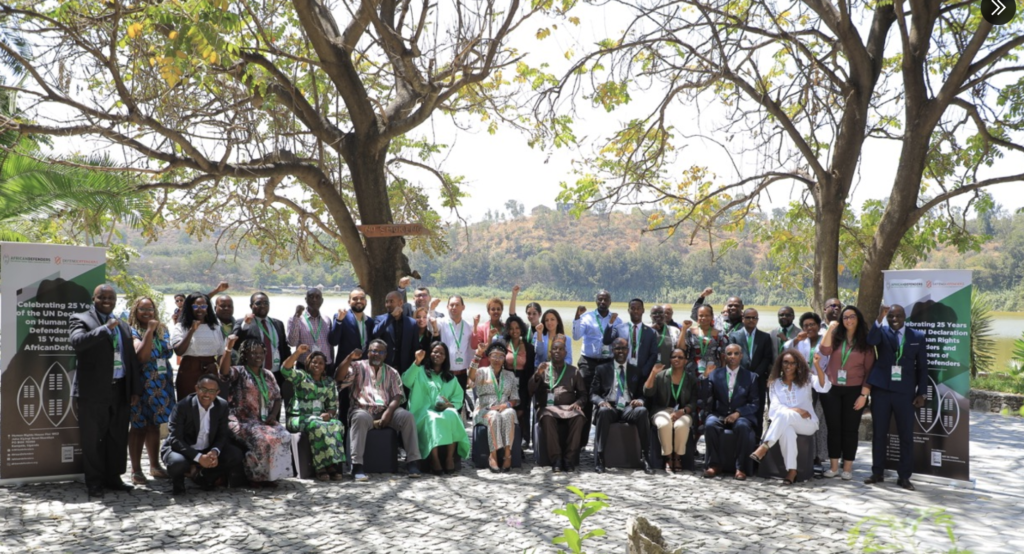
Protecting HRDs is not just a noble ideal. As Africa grapples with a new wave of civil wars and political instability – there have been 9 coups d’état across the Sahel, West, and Central Africa since 2020, and the civic space situation on the continent continues to deteriorate as our bi-annual report showed, HRDs remain courageous antidotes against unchecked the poison of abuse of power. They sustain advocacy in risky situations, helping hitherto unheard victims find a voice and aid efforts for accountability.
This year, Sudan has been the biggest human rights crisis on the continent. When Sudan’s military leaders turned guns on each other, throwing the country into what threatens to turn into a full-fledged civil war with ethnic overtones, we rallied over 90 Sudanese and other international human rights-focused NGOs to call for an emergency session of the UN Human Rights Council to discuss the worsening human rights situation in the country and pressure the two military factions to cease fire. That call was heeded two weeks later, and the resultant resolution S-36/1 condemned the rights violations in the country and called for an immediate ceasefire. In a follow-up commentary in Ugandan press in June, I emphasised that any efforts to resolve the conflict in Sudan must centre accountability if they are to be sustainable.
As the conflict continued to fester, worsening an already complex humanitarian situation, I joined leaders of over 50 international organisations in September to call for more aid, solidarity and attention to the Sudan crisis. Our year-long advocacy efforts finally paid off in October, after we reiterated a call for the establishment of an international investigation, signed by 120 NGOs, when the UN Human Rights Council resolved to constitute a fact-finding mission (FFM) for Sudan to aid future accountability processes. However, with other emerging crises across the globe, attention on Sudan is scant. It is important for the international community to fast track the operationalisation of the FFM and increase pressure on the warring parties to permanently cease fire and work towards rebuilding the country. Those responsible for grave crimes should not be part of the transition, and accountability must be at the centre of a new Sudan, which will never see a repeat of the atrocities witnessed twenty years ago in Darfur – and, as we speak, across the country.
In parallel, we led civil society efforts to maintain international scrutiny of, and attention to, situations of concern, including South Sudan, Eritrea, Burundi, and Somalia. We brought HRDs from these countries to Geneva to ensure their issues were central to our advocacy and considered by decision-makers – in this case, the Human Rights Council.
This advocacy was not limited to the UN. Closer to home on the continent, we continued to lobby states and African governments to reaffirm their commitment to human rights and the protection of HRDs. In January, I joined the African Commission on Human and People’s Rights’ (ACHPR) Chairperson, Prof, Rémy Ngoy Lumbu, and the Tanzania Human Rights Defenders Coalition (THRDC) National Coordinator, Onesmo Olengurumwa, to request the President of the United Republic of Tanzania, H.E. Ms. Samia Suluhu Hassan, to host the 77th session of the ACHPR. The request was eventually granted, and in October, we led a delegation of over 40 HRDs to participate in the session in Arusha.
We particularly supported North African HRDs, pro-democracy activists, artist HRDs, environmental and climate justice activists, women HRDs, and marginalised and minority groups to participate in the session, linking them to special mechanisms and creating space for their voices to be heard through public events and oral statements. Exposing HRDs to regional and international human rights mechanisms enhances their capacity and knowledge allowing them to effectively carry out their work. You can read a more detailed report of our engagements at the session.
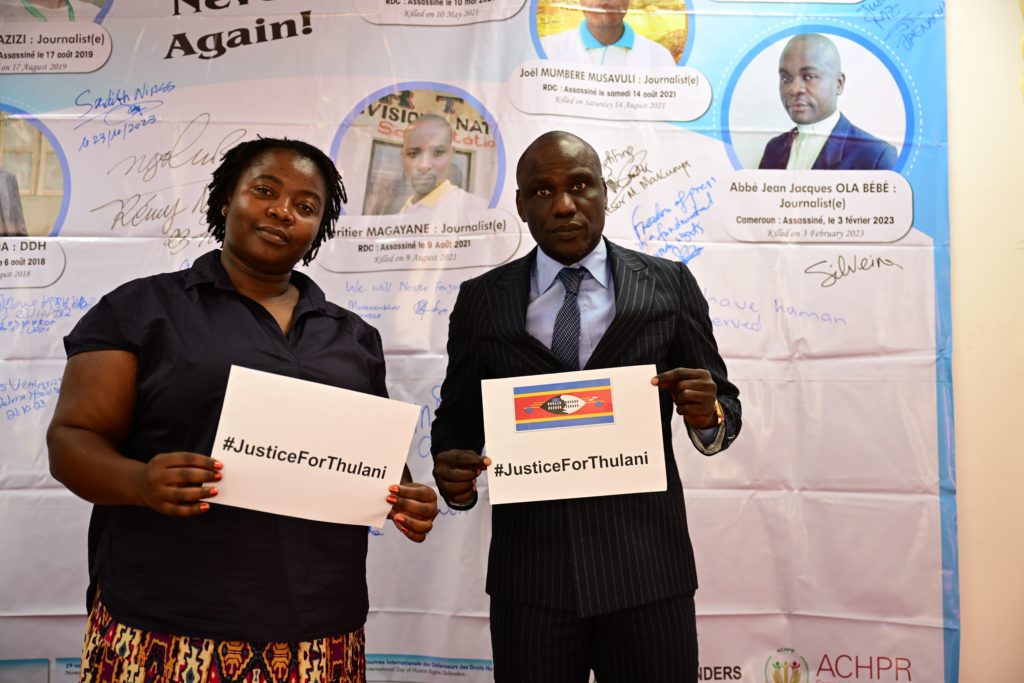
To achieve maximum impact, we complemented our advocacy with digital campaigns. In June, we launched #DefendersStories, an online campaign, told through HRD stories, designed to draw more attention to the plight of HRDs and the difficult situations they have to navigate to claim their rights. This effort has generated greater awareness to the human suffering endured by HRDs, and it is our hope that more people will in future commit to look out for their safety and wellbeing. We followed this with one on #Hrdswellbeing that sought to highlight the specific issue of anxiety and other mental health challenges that affect HRDs, owing to the dangerous environments in which they work. The month-long campaign reached over 1500 people in over 10 countries, attracting 207 new followers to our social media pages. Finally, we joined the rest of the world to mark the #16DaysofActivism against gender-based violence with our own #DDAgainstGBV campaign that sought to highlight the stories of women HRDs making a difference in their communities with their remarkable efforts to uplift and empower other women.
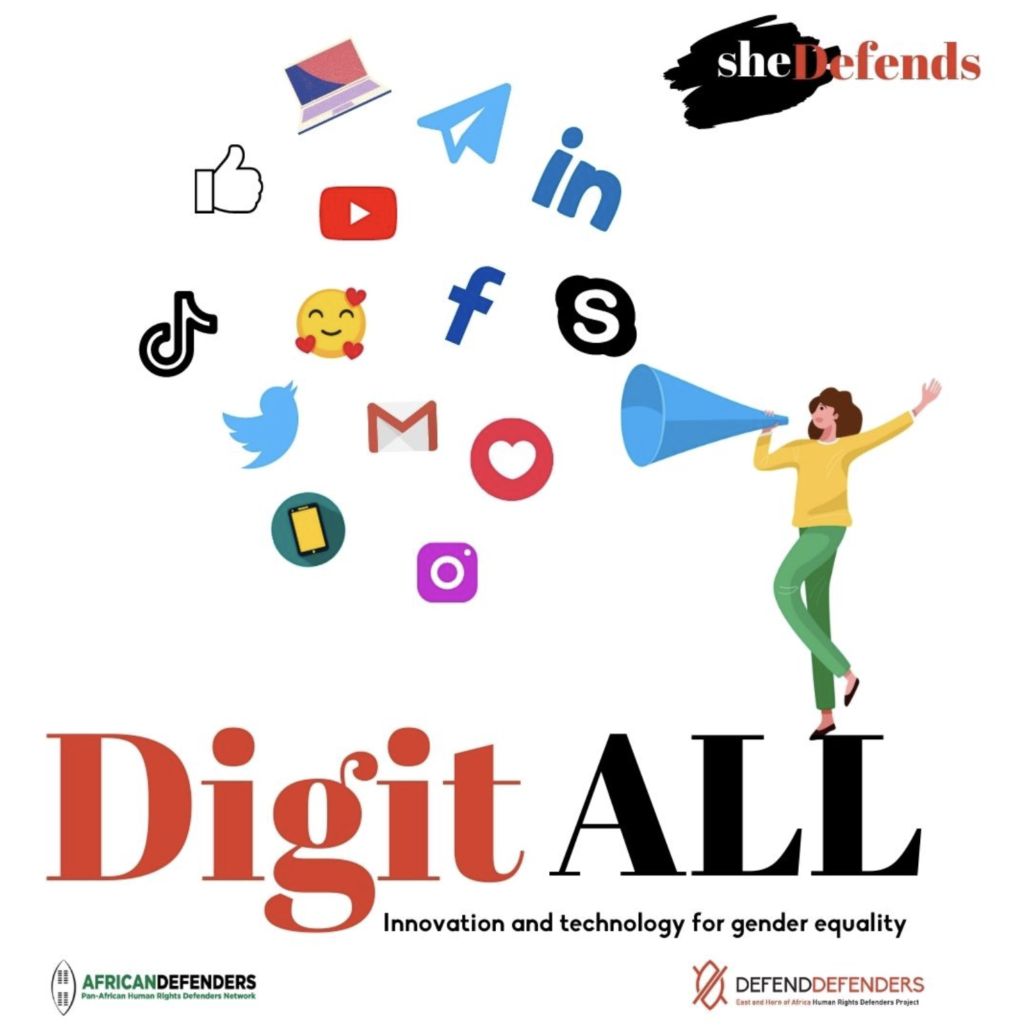
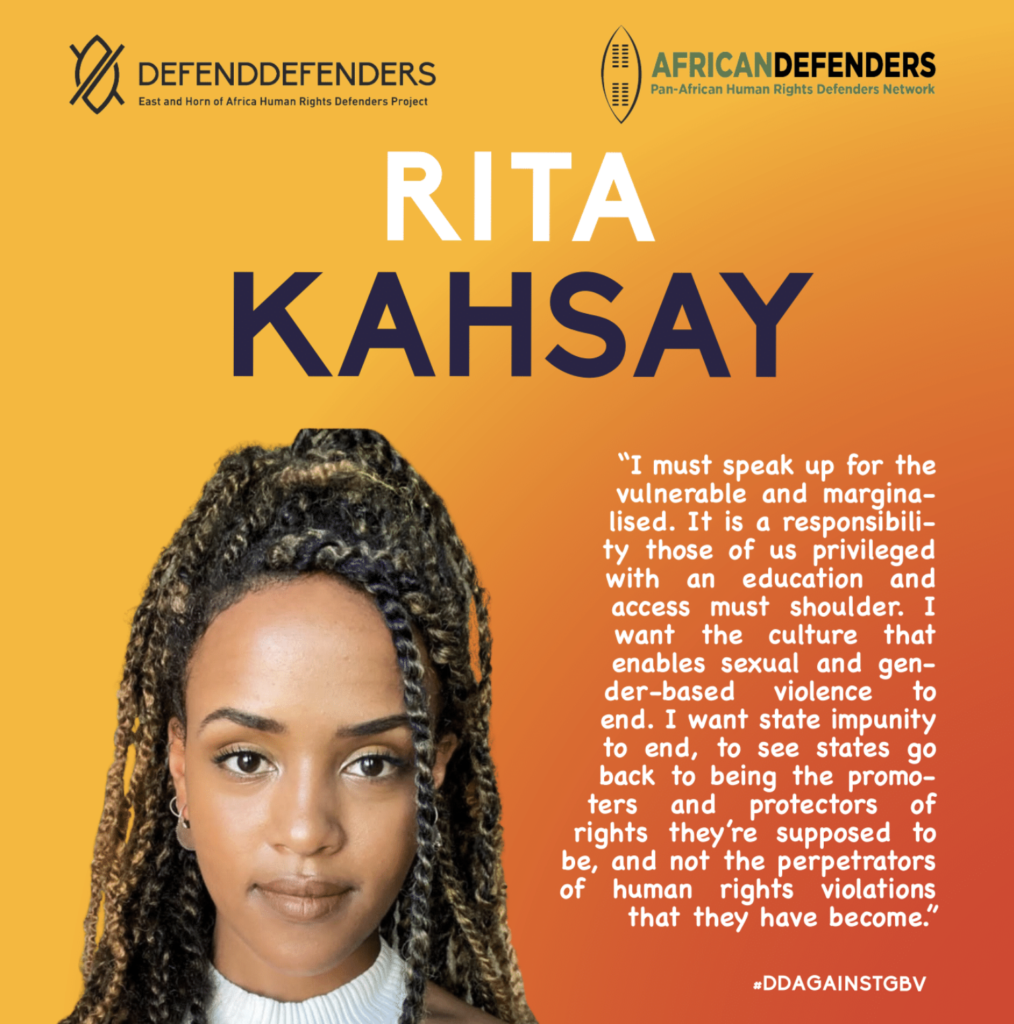
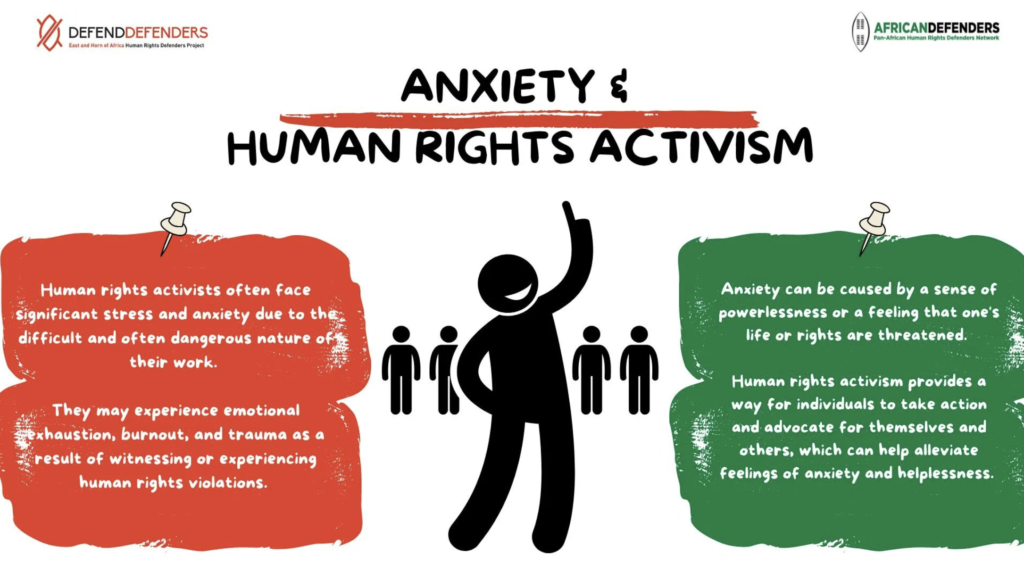
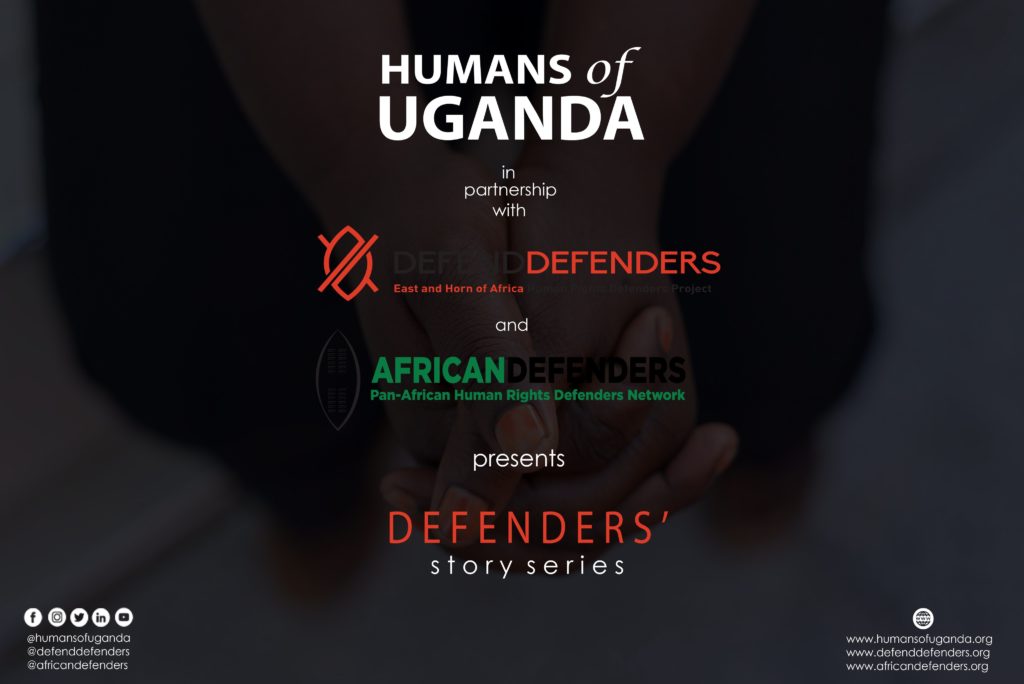
Our advocacy, whether digital or at the UN and AU, is evidence-based. It is always informed by our networks and research. This year, one of our research products focused on the plight of women HRDs in South Sudan. Against All Odds shows that amidst South Sudan’s shrinking civic space, women HRDs are doubly endangered, suffering both the historical marginalisation of women in South Sudan, and the additional stigma associated with those who dare to reject the traditional social status reserved for women, by daring to stand up and speak up for others.
In the face of enhanced natural resource activity in the Great Lakes region, our second report this year sought to peer into the Situation of Environmental HRDs in the region, with a specific focus on Uganda, Tanzania and the Democratic Republic of the Congo. It reveals that as states partner with business companies to exploit natural resources, human rights tend to take a back seat, leaving environmental HRDs who dare to challenge the human rights excesses of these businesses vulnerable.
On the civil rights front, we shone a torch in the unique plight of artist-HRDs on the continent, as they seek to creatively protest injustice and expand the frontiers of free expression. The State of Artists HRDs in Africa discusses the state of artistic freedom in Africa, the challenges faced by artivists, and the strategies they employ to navigate restrictive civic spaces.
Finally, our flagship research project this year was a commemorative report to mark 75 years of the UDHR and 25 years of the Declaration on HRDs. Looking Back explores how the two instruments have impacted the evolution of Africa’s human rights mechanisms and the work and situation of the continent’s HRDs.
The broad spectrum of our work and our multi-faceted advocacy engagements have continued to open more opportunities for collaboration with like-minded peers and organisations. In August, DefendDefenders officially assumed the responsibility of hosting the next phase of the Consortium for Human Rights & Media (CHARM) in Sub-Saharan Africa. CHARM is a partnership of 7 organisations – Fojo Media Institute, Magamba Network, Civil Rights Defenders, CIVICUS, Wits Centre for Journalism, Women Leaders for Development and DefendDefenders, committed to advocating for greater civic space in Sub-Saharan Africa. The consortium will be hosted by DefendDefenders for the next five (5) years.
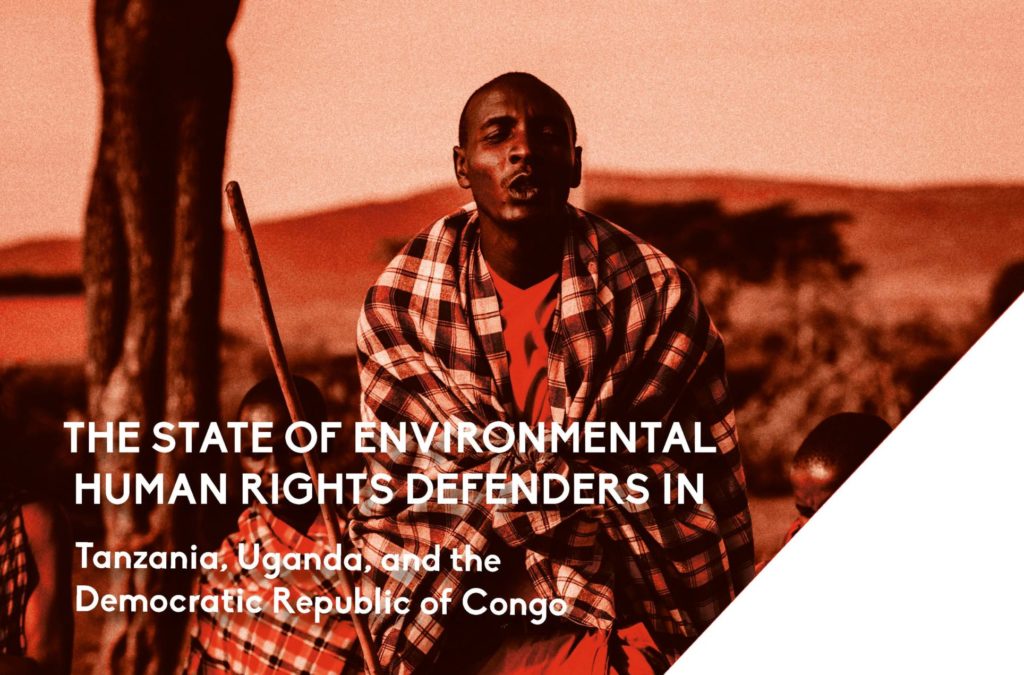
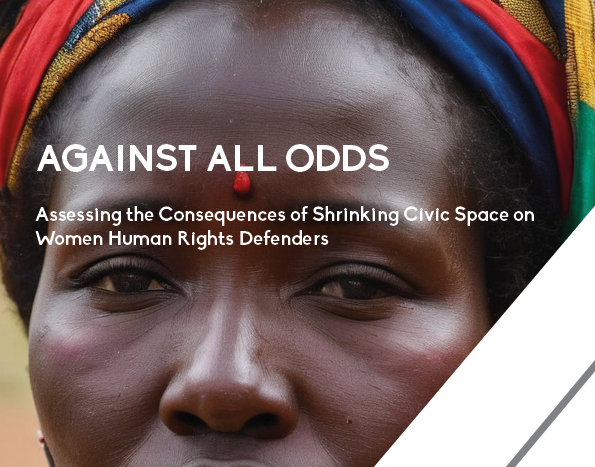
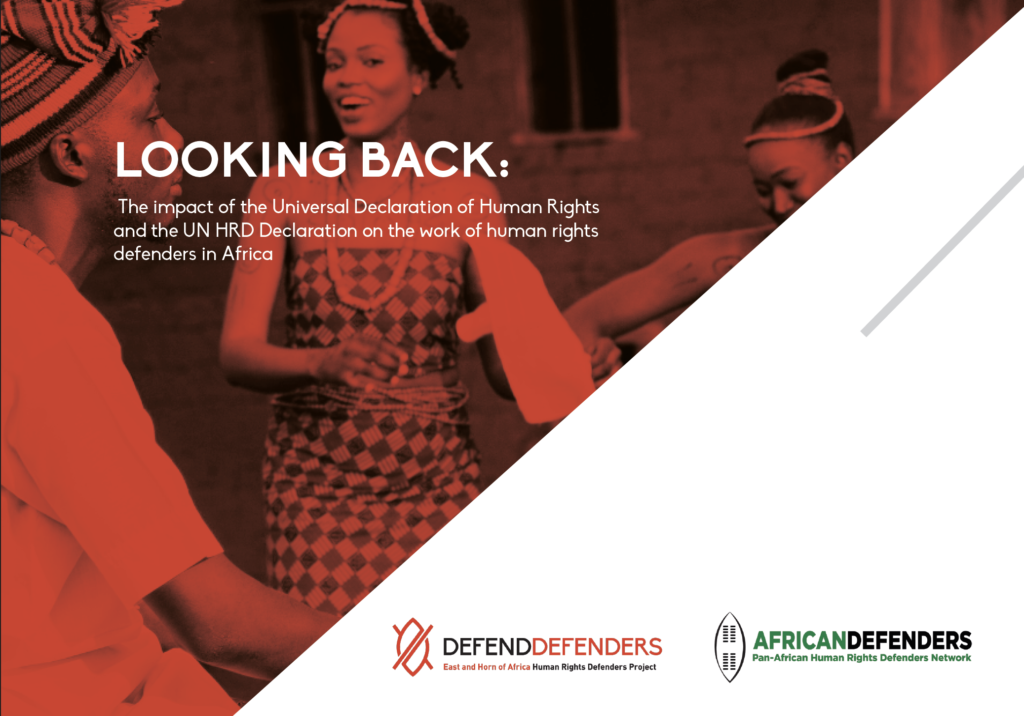
In October, DefendDefenders signed a historic memorandum of understanding with Justice for Peace, Netherlands, which will see our own Ubuntu Hub Cities initiative collaborate closely with Netherland’s Shelter City Initiative to better all round expertise in relocation of HRDs at risk.
Our last partnership for the year was a two-pronged partnership with Meta, we inked this month, to launch an online HRD fund to support HRDs impacted by their activism, and an online digital security for activists curriculum – a free-to-access online training program focusing on security basics, community standards, and available support resources. Both will see online activists and HRDs, often under served by protection initiatives get attended to by strengthening their capacity and resilience.
These new partnerships will continue to strengthen our resolve to better protect HRDs and build their capacity, which is our primary concern. As such, our protection program continued to grow and expand. We received -1,353 requests for emergency protection: 1,305 from East and Horn of Africa, 18 from the rest of Africa, and 30 from Asia. Out of these, we extended support to 617, had to decline 543, and referred 150 to partner organisations. (24 cases remain pending while 19 were withdrawn.) Under our continental Ubuntu Hub Cities protection program, we received 98 requests out of which we supported 56, had to decline 21 and referred 9 to partners. (Two cases were withdrawn while 10 remain under review at the time of writing.)
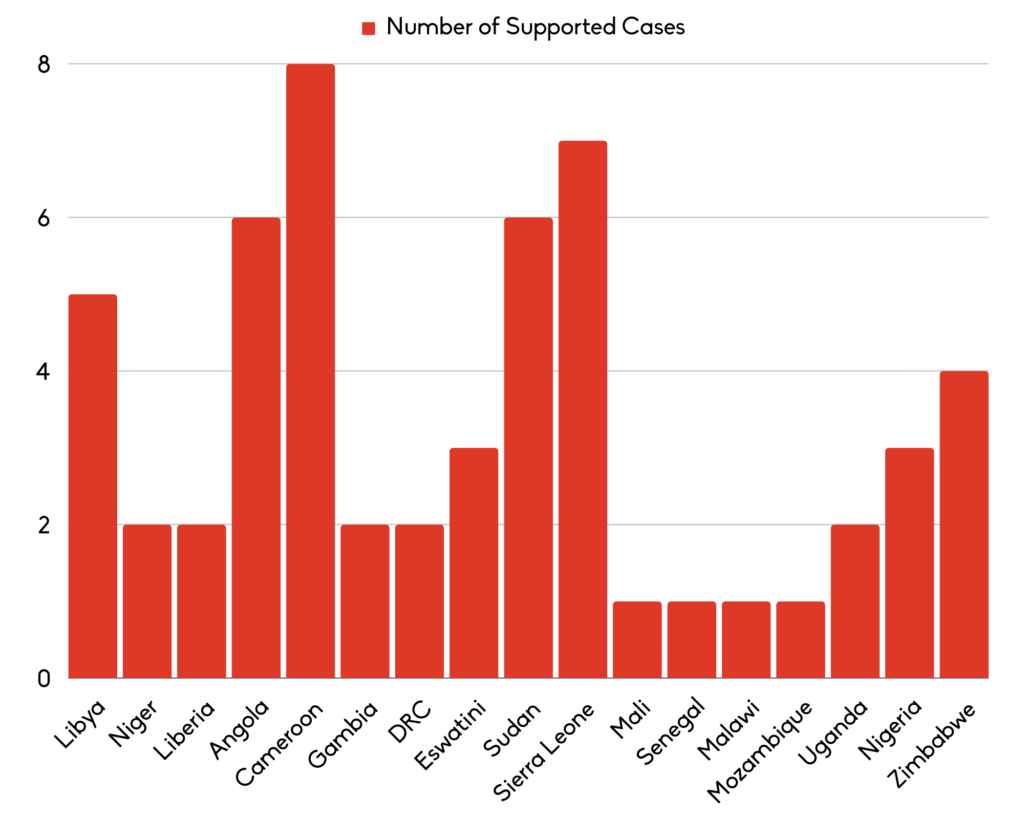
On the capacity building front, we prioritised digital and physical security training for HRDs and HRD coalitions in the East and Horn of Africa, DRC, and the Sahel, to strengthen their resilience and capacity to address digital and physical threats. 122 HRDs were beneficiaries of our capacity building initiatives on physical, digital, wellbeing, MDR and resource mobilisation. Of the 122, 62 identified as female and 59 as male.
DefendDefenders supports the establishment of national coalitions of HRDs to coordinate protection, cooperation, and collaboration of HRDs at national level. As part of organisational and institutional support, we supported SudanDefenders to formalise its structures including developing an action plan for 2024. Additionally, we strengthen the resilience and capacity of exiled HRDs living in Kampala. To this end, DefendDefenders convened a protection stakeholders meeting including with the Office of the Prime Minister of Uganda which oversees the country’s refugee policy and program. In the same meeting, the exiled HRDs working group elected new leaders to serve on its leadership committee.
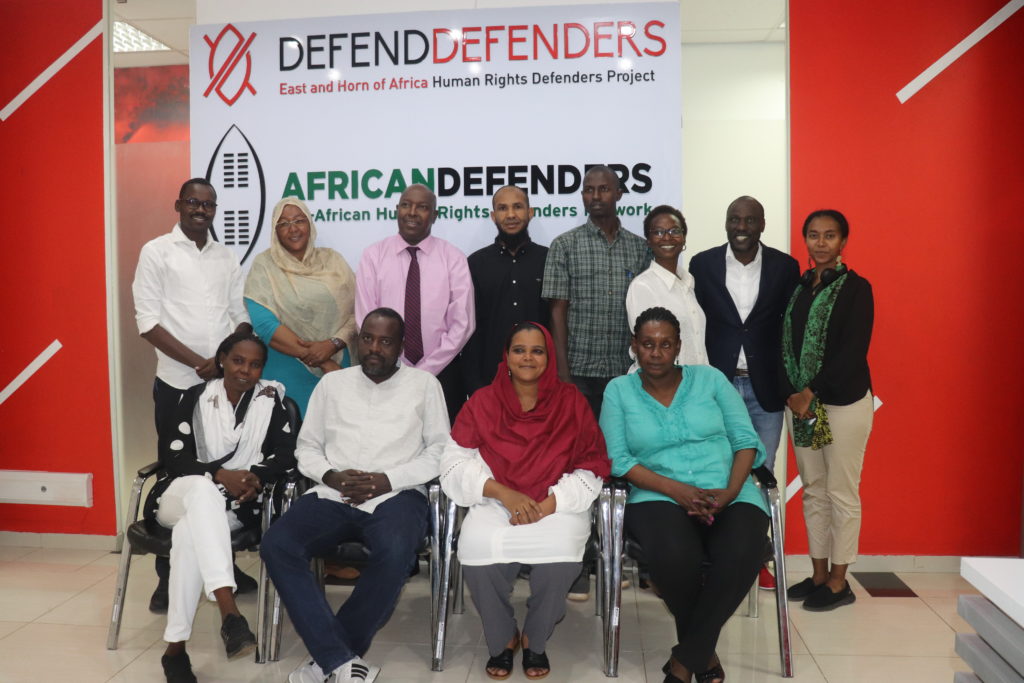
This year, I undertook solidarity visits to Kenya and Mozambique, where I spoke and expressed solidarity with indigenous women HRDs and Mozambique HRDs, in their respective efforts to ensure greater civic rights for their communities. I also visited Namibia during the 6th annual Southern Africa Human Rights Defenders Summit in Windhoek, where I expressed solidarity with SouthernDefenders as it continues to courageously pushback against human rights excesses in Swaziland and Mozambique among other Southern African countries.
In November, we convened the 13th edition of our annual flagship event; Claiming Spaces: Tactical tools for HRDs in South Sudan, in collaboration with the South Sudan Human Rights Defenders Network, as the network marked 10 years of existence. Over the course of three days, South Sudan HRDs were trained in among others monitoring, documentation and reporting, and other tools for effective advocacy.
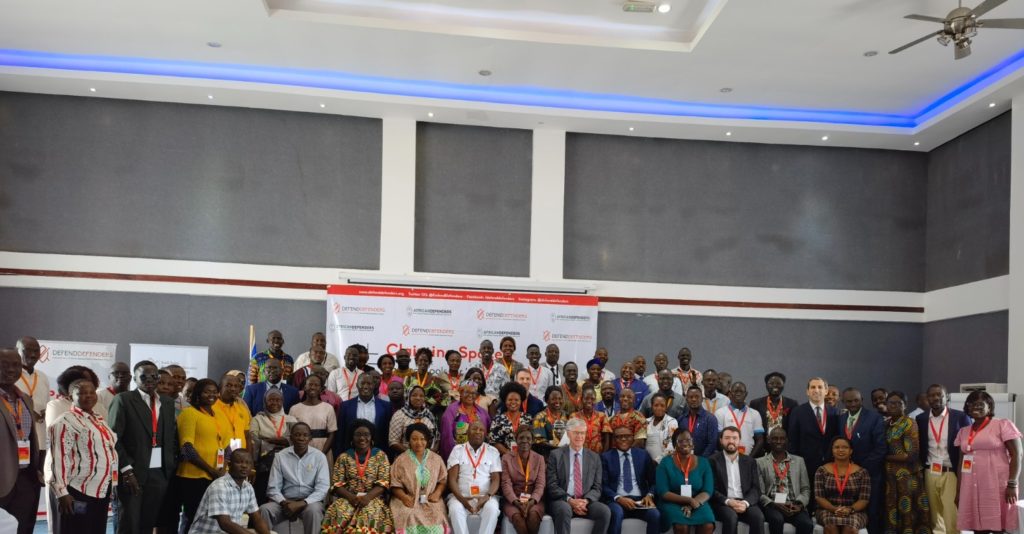
Our final act for the year was a gala to commemorate 75 years of the UDHR and 25 years of the Declaration on HRDs. Hosted on the eve of International Human Rights Defenders Day on 8th December at the Kampala Sheraton Gardens, the gala was attended by representatives of diplomatic missions, heads of UN bodies, civil society leaders, and was presided over by Uganda’s Minister for Justice and Constitutional Affairs, Hon. Norbert Mao.
Among other activities, the dignitaries pledged their respective governments’ commitments to the values and provisions of the UDHR and the Declaration on HRDs, and launched the commemorative report earlier referred to above. On his part, Hon. Mao committed that his Ministry would publish a National Action Plan on Human Rights by March 2024, and invite HRDs and human rights stakeholders to further discuss the Human Rights Defenders Bill currently before the Ugandan Parliament. The following day, on International Human Rights Defenders Day, NTV Uganda hosted my staff and one of Uganda’s environmental HRDs, Amanzuru William, to discuss our work in the context of the UDHR and the Declaration on HRDs.
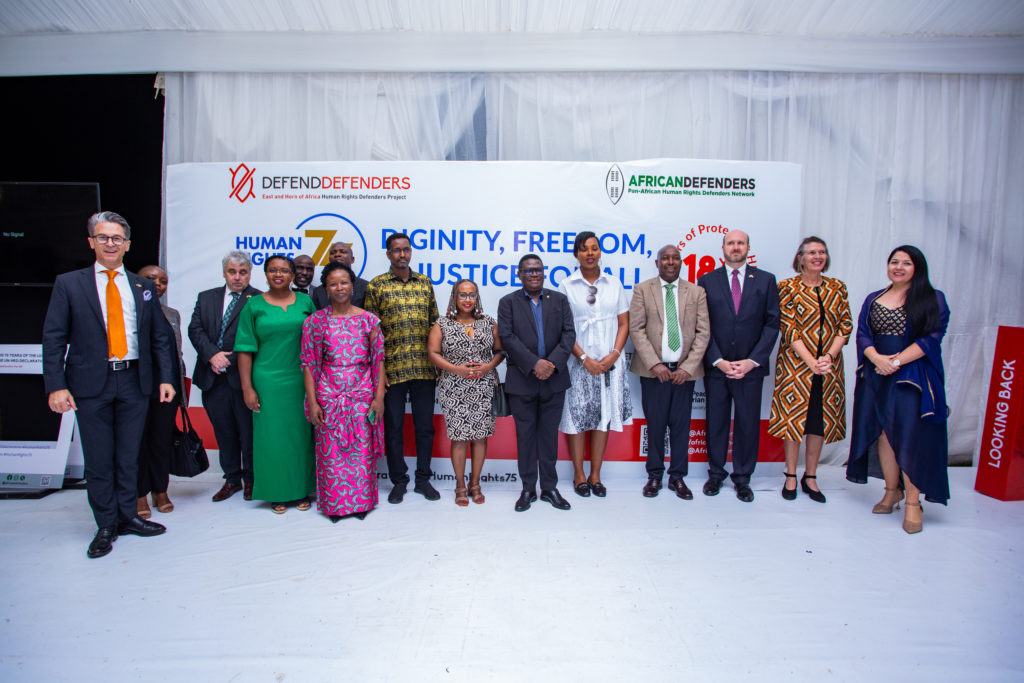
I extend my appreciation to DefendDefenders’ staff, national coalitions and subregional networks, and our development partners who have walked with and supported us in the year. We pledge to continue living up to our mandate and commitments in the coming years.
Our office will be closed on 15 December for the holidays and will reopen on 8 January 2024, but our emergency line +256 707020086 for HRDs at risk and [email protected] will remain operational throughout the holidays.
Happy holidays!
Hassan Shire
Executive Director, DefendDefenders
Chairperson, AfricanDefenders

